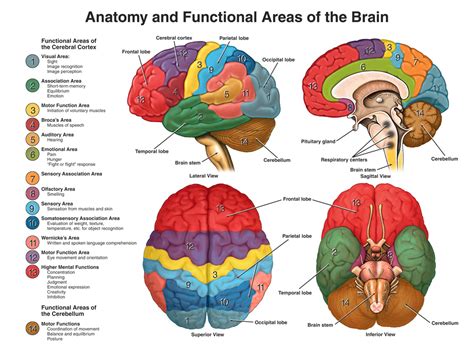What healthy fats boost testosterone & cognitive function for men?

The Essential Role of Fats in Men’s Health
For decades, fats were demonized in dietary advice, often linked to negative health outcomes. However, modern nutritional science has clarified that not all fats are created equal. In fact, specific types of healthy fats are absolutely critical for men’s health, playing pivotal roles in hormone production, brain function, and overall well-being. Understanding which fats to prioritize can significantly impact testosterone levels and cognitive performance.

Healthy Fats and Testosterone Production
Testosterone, the primary male sex hormone, is vital for muscle mass, bone density, libido, and mood. Its production relies heavily on dietary cholesterol, which serves as a precursor. While cholesterol can be synthesized by the body, healthy fats provide the necessary building blocks and support the enzymatic processes involved.
Monounsaturated Fats (MUFAs)
- Sources: Avocados, olive oil, nuts (almonds, cashews, pecans), seeds (pumpkin, sesame), avocado oil.
- Impact: MUFAs have been consistently linked to healthy testosterone levels. They provide the raw materials (cholesterol) and support cellular health, which is crucial for efficient hormone synthesis in the testes. Studies show diets rich in MUFAs can promote optimal hormonal balance.
Polyunsaturated Fats (PUFAs) – Especially Omega-3s
- Sources: Fatty fish (salmon, mackerel, sardines), flaxseeds, chia seeds, walnuts, fish oil supplements.
- Impact: Omega-3 fatty acids, particularly EPA (eicosapentaenoic acid) and DHA (docosahexaenoic acid), are powerful anti-inflammatory agents. Chronic inflammation can negatively impact testosterone production. By reducing inflammation and improving cellular fluidity, omega-3s support the healthy functioning of Leydig cells in the testes, where testosterone is produced. They also improve insulin sensitivity, which is indirectly linked to testosterone levels.

The Role of Saturated Fats (in moderation)
While often cautioned against, some saturated fat is necessary for testosterone production. Cholesterol, derived from saturated fats, is the direct precursor to testosterone. However, the key lies in moderation and source. Opt for saturated fats from whole, unprocessed sources like grass-fed butter, coconut oil (in small amounts), or naturally occurring in lean meats, rather than from processed foods.
Boosting Cognitive Function with Healthy Fats
The brain is nearly 60% fat, making dietary fat intake profoundly influential on cognitive health, memory, focus, and mood. Healthy fats provide structural components and facilitate neural communication.
Omega-3 Fatty Acids (DHA & EPA) Revisited
- Sources: Fatty fish, fish oil, algae-based DHA supplements.
- Impact: DHA is the most abundant omega-3 in the brain and is crucial for the structure and function of brain cell membranes. It plays a vital role in neurogenesis (the formation of new brain cells), synaptic plasticity (the brain’s ability to adapt), and neurotransmitter function. EPA also contributes by reducing brain inflammation and supporting mood regulation, potentially easing symptoms of depression and anxiety, which can impact focus and memory.

Monounsaturated Fats for Brain Health
- Sources: Olive oil, avocados, nuts.
- Impact: MUFAs contribute to better blood flow to the brain, ensuring it receives adequate oxygen and nutrients. They also possess antioxidant properties that protect brain cells from oxidative damage, a factor in cognitive decline. Research suggests a diet rich in MUFAs, such as the Mediterranean diet, is associated with improved cognitive function and a reduced risk of neurodegenerative diseases.
Other Important Lipids for Brain Health
Beyond MUFAs and omega-3s, other healthy fats contribute to brain health. For example, phospholipids, found in eggs and some meats, are vital components of cell membranes. Short-chain fatty acids (SCFAs), produced when gut bacteria ferment dietary fiber, also have a beneficial impact on brain health through the gut-brain axis.

Practical Dietary Strategies for Men
Incorporating these healthy fats into your daily diet doesn’t have to be complicated:
- Eat fatty fish: Aim for 2-3 servings of salmon, mackerel, or sardines per week.
- Include avocados: Add half an avocado to your breakfast, salads, or sandwiches daily.
- Use olive oil: Make extra virgin olive oil your primary cooking oil and for salad dressings.
- Snack on nuts and seeds: A handful of walnuts, almonds, or chia seeds provides essential fats.
- Consider supplements: If dietary intake is insufficient, a high-quality omega-3 supplement (fish oil or algae-based) can be beneficial.
- Don’t fear eggs: The cholesterol in egg yolks is beneficial for hormone production and provides choline, another brain-boosting nutrient.
Conclusion
Healthy fats are indispensable for men looking to optimize both their testosterone levels and cognitive function. By focusing on a diet rich in monounsaturated fats and omega-3 polyunsaturated fats, while consuming saturated fats in moderation from quality sources, men can support robust hormonal health, sharp mental acuity, and overall vitality. Prioritizing these nutritional powerhouses is a fundamental step towards a healthier, more balanced life.









